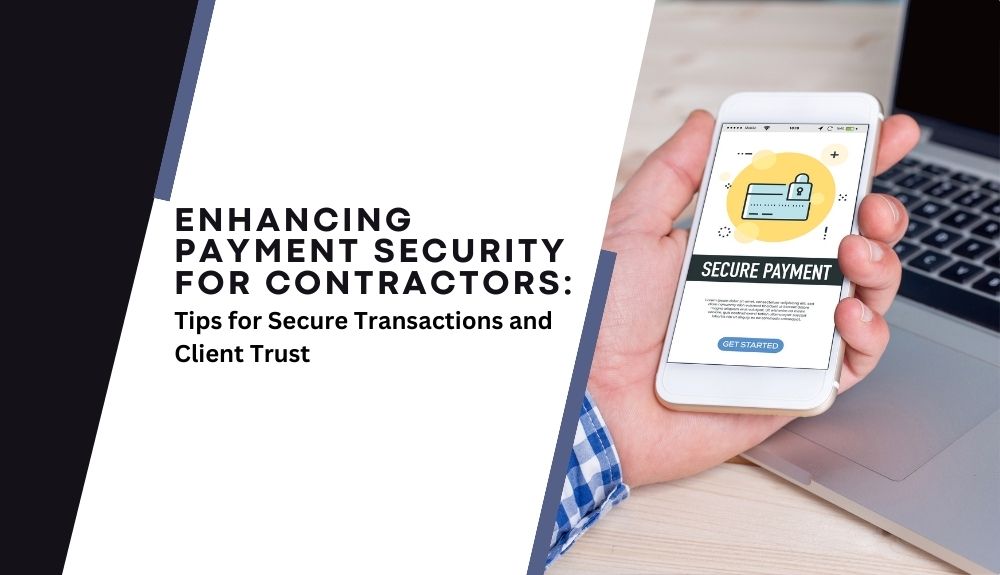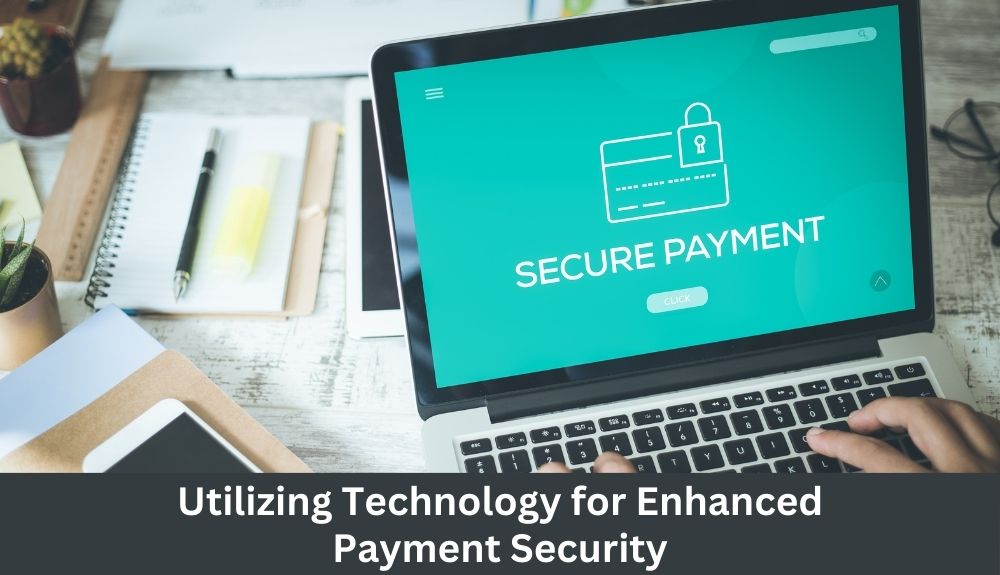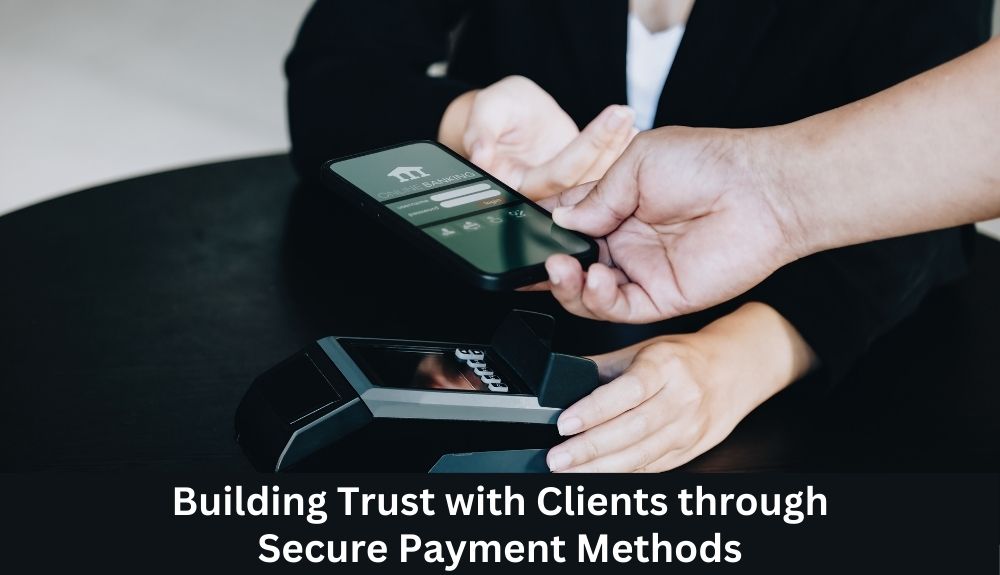
By alphacardprocess February 15, 2024
As a contractor, your expertise lies in building and renovating structures. But there’s another crucial aspect of your business that requires just as much attention – payment security. In this digital age where financial transactions can happen at the click of a button, ensuring the safety and integrity of your payments is paramount.
Unfortunately, contractors often face various payment security risks that can harm their business reputation and bottom line. From fraudulent clients to insecure payment methods, it’s essential to be proactive in safeguarding your financial transactions.
In this blog post, we will explore common payment security risks faced by contractors and provide you with valuable tips on how to enhance secure transactions with clients. By prioritizing payment security, you not only protect yourself from potential losses but also build trust with your clientele – a key ingredient for long-term success in the contracting industry.
So let’s dive into the world of payment security practices that will empower you to navigate through secure transactions with confidence!
The Importance of Payment Security for Contractors
In the contracting business, payment security is more than just a precaution – it’s a necessity. As contractors, your livelihood depends on receiving timely and accurate payments for your work. But why is payment security so crucial?
Ensuring payment security protects you from financial losses and potential fraud. Contractors often deal with large sums of money for materials, equipment, and labor costs. Without proper safeguards in place, you leave yourself vulnerable to fraudulent clients or unscrupulous individuals who may attempt to exploit loopholes in your payment processes.
Prioritizing payment security helps you maintain a positive reputation in the industry. Word travels fast in the world of contracting, and any instances of mishandled payments or compromised transactions can tarnish your image as a trustworthy professional.
Moreover, when clients feel confident that their financial information is secure with you, they are more likely to hire and recommend your services to others. Trust plays an integral role in building strong client relationships that lead to repeat business.
Implementing robust payment security measures can also save you time and resources by streamlining your invoicing process. With secure online platforms and digital tools available today, contractors can automate invoicing procedures while maintaining strict control over sensitive financial information.
By recognizing the importance of payment security for contractors like yourself, you lay the foundation for sustainable growth and success in an increasingly competitive industry. Stay tuned as we delve into common risks faced by contractors regarding payment security!
Common Payment Security Risks Faced by Contractors
Payment security is a critical concern for contractors. As they conduct business and accept payments from clients, they face various risks that could compromise their financial stability and reputation. Understanding these common payment security risks is essential in order to take proactive measures to mitigate them.
One common risk faced by contractors is the potential for fraudulent transactions. Contractors may come across clients who attempt to make payments using stolen credit cards or other fraudulent means. This can result in financial losses for the contractor as well as damage their professional standing.
Another risk involves late or non-payment by clients. Some clients may delay payment intentionally or even refuse to pay altogether, leaving the contractor with unpaid invoices and potentially putting a strain on their cash flow.
Contractors are also vulnerable to phishing attacks and other forms of cybercrime. Hackers may target contractors’ email accounts, posing as legitimate clients or third-party vendors, in an attempt to gain access to sensitive information such as bank account details or login credentials.
Additionally, contractors may face chargebacks from disgruntled clients who dispute charges made for services rendered. This can lead to disputes and potential loss of funds if not handled properly.
To address these risks, contractors need to implement robust payment security measures such as utilizing secure online payment gateways that offer encryption and strong authentication protocols. Regularly reviewing transaction records can help identify any suspicious activity early on.
Maintaining clear communication with clients regarding payment terms and ensuring contracts are comprehensive can also minimize misunderstandings that could lead to delayed payments or disputes later on.
Furthermore, staying updated on emerging threats related to cybersecurity is crucial so that contractors can employ appropriate safeguards like anti-phishing software and regularly updating passwords.
By being vigilant about payment security risks and taking necessary precautions, contractors can protect themselves from financial losses while maintaining trust with their valued clients.
Utilizing Technology for Enhanced Payment Security

In today’s digital age, technology plays a crucial role in enhancing payment security for contractors. With cyber threats on the rise, it is essential to leverage the right tools and systems to protect sensitive financial information and ensure secure transactions with clients.
One effective way to enhance payment security is by implementing secure online payment platforms. These platforms offer encrypted data transmission, multi-factor authentication, and fraud detection mechanisms that significantly reduce the risk of unauthorized access or fraudulent activities.
Another useful technology tool for contractors is virtual credit card solutions. By using virtual cards instead of physical ones, contractors can minimize the chances of card cloning or theft. Virtual cards generate unique numbers linked to specific transactions, providing an added layer of protection against potential breaches.
Additionally, integrating advanced encryption methods into your payment processing system can safeguard client information effectively. Encryption converts sensitive data into an unreadable format during transmission or storage, making it virtually impossible for hackers to decipher.
Furthermore, leveraging biometric authentication technology such as fingerprint or facial recognition adds an extra level of security when verifying financial transactions. Biometrics are unique identifiers that cannot be replicated easily and provide a more reliable means of confirming one’s identity compared to traditional passwords or PINs.
Regularly updating software applications and operating systems along with conducting periodic cybersecurity audits can help identify vulnerabilities before they are exploited by malicious actors. Staying informed about emerging technologies and industry best practices ensures you stay one step ahead in protecting yourself and your clients from potential threats.
By embracing these technological advancements in payment security measures, contractors can establish trust with their clients while safeguarding their business interests in an increasingly digital world. Remember: A proactive approach towards utilizing technology will go a long way in ensuring secure transactions and maintaining client confidence!
Legal Considerations for Contractors Regarding Payment Security
As a contractor, ensuring payment security is not just about protecting your business and finances, but also about meeting legal obligations. Understanding the legal considerations surrounding payment security can help you navigate potential pitfalls and protect yourself from disputes or non-payment.
It’s essential to have clear and detailed contracts in place with your clients. These contracts should outline the agreed-upon scope of work, project timelines, payment terms, and any penalties for late or non-payment. By having a legally binding contract in place, you establish a strong foundation for enforcing payment obligations.
Additionally, contractors should be familiar with local laws and regulations related to payment security. Each jurisdiction may have different requirements regarding billing practices, invoicing deadlines, interest rates on late payments, dispute resolution mechanisms, and more. Staying informed about these legal requirements will ensure that you are compliant with local laws while safeguarding your financial interests.
Conclusion: Prioritizing Payment Security for Long-term Success
In today’s digital age, payment security is crucial for contractors looking to maintain trust with their clients and ensure long-term success. By understanding the common risks associated with payment transactions and implementing the right strategies, contractors can enhance payment security and build strong relationships with their clients.
One of the first steps in enhancing payment security is recognizing the potential risks that contractors face. Whether it’s fraudulent transactions, data breaches, or identity theft, being aware of these threats allows contractors to take proactive measures to protect themselves and their clients’ sensitive information.
To ensure secure transactions with clients, there are several best practices that contractors should follow. These include using encrypted online platforms for invoicing and accepting payments, requiring multi-factor authentication for access to financial accounts, regularly monitoring financial activity for any signs of unauthorized transactions, and validating client identities before conducting business.
Building trust with clients goes hand in hand with implementing secure payment methods. Contractors can establish credibility by clearly communicating their commitment to protecting client information and employing industry-standard encryption technologies. Providing transparent invoices and receipts also helps instill confidence in both parties involved in the transaction.
Utilizing technology plays a significant role in enhancing payment security. Contractors should leverage secure online platforms specifically designed for managing contracts, invoices, and payments. These platforms often incorporate advanced encryption techniques while providing convenient features such as automatic reminders for overdue payments or integrated dispute resolution mechanisms.
It’s important not to overlook legal considerations when it comes to payment security as well. Familiarize yourself with relevant laws governing contract agreements specific to your industry or jurisdiction. This includes understanding your rights as a contractor regarding late or non-payment issues so you can take appropriate action if necessary.
In conclusion, prioritizing payment security is essential for contractors who want sustainable success in their businesses. By staying vigilant about potential risks faced during monetary transactions, adopting secure technologies available on dedicated platforms tailored towards contractors, and remaining compliant with relevant legal standards, contractors can establish a robust foundation
When it comes to secure transactions with clients, contractors need to take proactive steps to protect their payment information and build trust. Here are some essential tips for ensuring secure transactions:
1. Use encrypted communication channels: When sharing sensitive payment details, always opt for encrypted platforms or secure email services. This adds an extra layer of security and reduces the risk of interception or data breaches.
2. Implement multi-factor authentication: Enable multi-factor authentication for all your online accounts and payment portals. This additional step ensures that only authorized individuals can access your accounts, even if passwords are compromised.
3. Regularly update software and systems: Keep your computer systems, mobile devices, and payment processing software up to date with the latest security patches. Outdated software may have vulnerabilities that hackers can exploit.
4. Verify client identities: Before initiating any financial transaction, verify the identity of your clients through reliable means such as government-issued identification or a verified business address.
5. Utilize secure payment gateways: Choose reputable third-party payment gateways that offer robust encryption protocols and fraud detection measures. These gateways provide a safe environment for both you and your clients during financial transactions.
6. Educate clients about phishing scams: Inform your clients about common phishing scams targeting contractors in which cybercriminals impersonate legitimate businesses to steal sensitive information. Remind them not to share personal or financial details via unsecured channels.
7. Have clear contracts in place: Ensure that you have clear contracts outlining the terms of payments agreed upon by both parties involved in a project.
Building Trust with Clients through Secure Payment Methods

Building trust with clients is crucial for any contractor, and one effective way to establish that trust is through secure payment methods. When clients feel confident that their financial information is safe, they are more likely to engage in long-term partnerships with contractors. So how can contractors build this trust?
It’s essential to offer a variety of secure payment options. By providing multiple choices like credit card payments or online platforms such as PayPal, contractors demonstrate their commitment to protecting client data.
Additionally, clear communication about the security measures implemented is key. Contractors should explain encryption techniques used on their websites or highlight partnerships with trusted payment processors. This transparency reassures clients that their sensitive information will remain confidential.
Regularly updating security systems and staying informed about industry best practices also helps build trust. Clients want assurance that contractors are actively working towards maintaining a high level of security and adapting to new threats.
Moreover, promptly addressing any concerns regarding payment security further strengthens trust. Contractors must be responsive and proactive when dealing with potential issues or inquiries from clients about the safety of transactions.
Testimonials from satisfied customers who have had positive experiences with secure payment processes can be invaluable in building trust with prospective clients. Sharing these testimonials on websites or social media platforms showcases real-life examples of successful transactions while emphasizing the importance placed on securing client information.
By prioritizing secure payment methods and effectively communicating those measures to clients, contractors can develop strong relationships built on trust and confidence in their professionalism and commitment to protecting client interests.